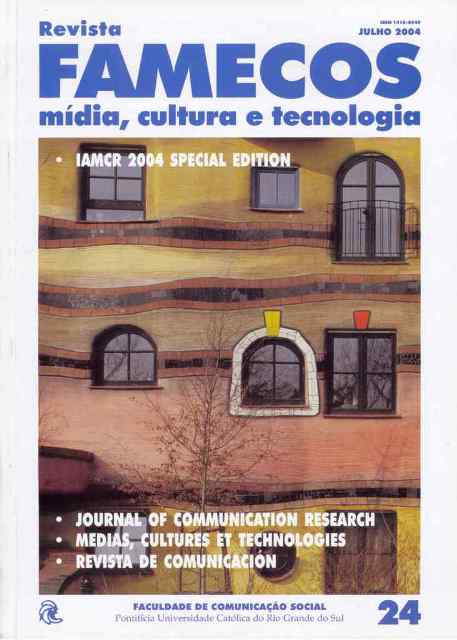The mathematical and the metaphysical roots of modern technological thought: Reading Heidegger
DOI:
https://doi.org/10.15448/1980-3729.2004.24.3267Keywords:
Heidegger, Technics, Technological ImperialismAbstract
Heidegger wanted to know the meaning of modern technique connecting its features with a thought’s calling forth principle that he named enframing (Gestell). This article aims to show that another factor, more original, also forms the epochal realm in which enframing arises. We call attention to ‘the mathematical’ and the way this element articulates our historical situation. With this in mind, we intend too understand, in archaeological lines, some conditions of our contemporary technological imperialism.
Downloads
References
Heidegger. Contributions to philosophy. Indiana: Indiana Univ. Press, 1999.
______. Nietzsche: metafísica e niilismo. São Paulo: Relume Dumará, 2000.
______. Conferenze di Brema e Friburgo. Milão: Adelphi, 2002.
______. Caminos de Bosque. Madri: Alianza, 1995.
______. La proposición del fundamento. Madri: Odós, 1990.
______. Nietzsche, v. 4. Nova York: Harper, 1991.
______. Seminários de Zollikon. Petrópolis: Vozes, 2001.
______. Aristotele metafisica. Milão: Mursia, 1992.
______. Introducción a la metafísica. Buenos Aires: Editorial Nova, 1956.
______. A Coisa. Lisboa: Edições 70, 1989.
______. Domande fondamentali della filosofia. Milão: Mursia, 1988.
______. Concepts fondamentaux (1941). Paris: Gallimard, 1985.
______. Correspondência com Hannah Arendt. Rio de Janeiro: Relume Dumará, 2000.
BARASH, Jeffrey. Heidegger e o seu século. Lisboa: Instituto Piaget, 1998.
BIRAULT, Henri. Heidegger et l’experience de la pensée. Paris: Gallimard, 1978.
CASCARDI, A. The subject of modernity. Berkeley (CA): University of California, 1992.
DREYFUS, Hubert; DREYFUS, Stuart. From Socrates to Expert Systems: The Limits of Calculative Rationality. Filosophy, n. 24, 2002.
DERRIDA, J.; Stiegler, B. Ecografias de la televisión. Buenos Aires: Eudeba, 1998.
FOUCAULT, Michel. As palavras e as coisas. Lisboa: Martins Fontes, 1978.
FEENBERG, Andrew. Questioning technology. Nova York: Routledge, 1999.
FRY, Tony. RUA TV - Heidegger and the televisual. Sidney: Power Books, 1993.
HAAR, Michel. Heidegger e a essência do homem. Lisboa: Piaget, 1997.
HEIM, M. The metaphysics of virtual reality. Oxford: Oxford University Press, 1993.
GUERY, François. Heideggeer rediscuté. Paris: Descartes & Cia, 1995.
KROKER, A. Hyper-Heidegger. CTheory, v. 21, n. 3, 2002.
MILET, Jean-Phillipe. L’Absolu technique. Paris: Kime, 2000.
PANSERA, M.T. L’uomo e i sentieri della tecnica. Roma: Armando, 1998.
RÜDIGER, F. Elementos para a crítica da cibercultura. São Paulo: Hackers, 2002.
SÉRIS, Jean -Pierre. La technique. Paris: Puf, 2000. WINNNER, Langdon. Autonomous technology. Cambridge (MA): MIT Press, 1977.
Downloads
Published
How to Cite
Issue
Section
License
Copyright
The submission of originals to Revista Famecos implies the transfer by the authors of the right for publication. Authors retain copyright and grant the journal right of first publication. If the authors wish to include the same data into another publication, they must cite Revista Famecos as the site of original publication.
Creative Commons License
Except where otherwise specified, material published in this journal is licensed under a Creative Commons Attribution 4.0 International license, which allows unrestricted use, distribution and reproduction in any medium, provided the original publication is correctly cited.






